For Easter evening, the Lectionary appoints the unique account in Luke’s Gospel of how Jesus joined in an evening meal with Cleopas and an unnamed companion. Jesus’ opening of the meal in the inn is strongly reminiscent of what he did in his Last Supper, so that the celebration of the Eucharist emerges as an occasion for recognizing his risen presence. Yet the emphasis of the account falls even more strongly on the interpretation of Scripture: how Moses, the Prophets, and the Psalms map Jesus’ trajectory as the Anointed of God. It is fitting, then, that the evening’s reading from the book of Isaiah voices an early prophetic hope of resurrection. The Resurrection is seen reflected even in the Passover through the reading of Psalm 114 in the light of Jesus’ presence (1 Corinthians 5:6b-8).
The First Reading
Isaiah 25:6-9
God’s Promises Are Universal
The earliest prophecies in the book of Isaiah were composed during the eighth century BCE and underwent several expansions, owing to its wide usage. The last part of the book of Isaiah as it stands (chapters 56-66) reflects a period of keen anticipation of God’s inclusion of all peoples within a newly restored Temple: a restoration that occurred towards the end of the sixth century BCE. This passage from chapter 25 reflects the same period, the same prophetic assurance, and an emerging interpretation that the promises of God are universal.
—
- The Lord of angelic armies will make for all peoples on this mountain
a feast of fat animals, a feast of good wine—
fat animals full of marrow and refined good wine. - He will swallow up on this mountain
the cover that covers all peoples
and the veil that veils all nations. - He shall swallow up death forever
and the masterful Lord will wipe away tears from the all faces,
and the reproach of his people he will remove from the earth,
because the Lord has spoken.
The Psalm
Psalm 114
In the Exodus and Conquest of the Land, Nature Recognized God’s Power
Psalm 114 reflects on God’s divine power and the victories it facilitates in times of the greatest need, such as during the Israelites’ Exodus from Egypt. In this reading, this past victory connects to the one celebrated today, when God, in the body of Jesus, conquers even death.
a people of foreign tongue,
- When the people of Israel left Egypt,
the house of Jacob from a people of foreign tongue, - the territory of Judah became God’s sanctuary;
the territory of Israel, God’s realm. - The sea saw and fled;
the Jordan River reversed course. - The mountains skipped like rams;
the hills, like sheep. - Why is it, sea, that you fled?
Jordan, that you reversed course? - Mountains, that you skipped like rams?
Hills, like sheep? - Tremble, earth, at the presence of the Lord,
at the presence of the God of Jacob, - who turned the rock into a pool of water,
flint into a fountain of water.
The Second Reading
1 Corinthians 5:6b-8
Jesus as Paschal Lamb
Jesus died near the time of Passover, so that early believers came to call the celebration of his being raised from the dead their Pascha (the Aramaic term for “Passover”). Because Paul was dedicated to the view that believers should look to the Anointed as the example of their own resurrection (as in this morning’s reading from 1 Corinthians), he here lingers on the comparison of Jesus’ offering to the sacrifice of the Paschal lamb, and relates the removal of yeast from Israelite households at Passover to the purging of immorality from the communities in Corinth.
—
Don’t you know that a little yeast leavens all the dough? Cleanse out the old yeast, in order that you can be new dough, just as you are unleavened: because the Anointed, our Passover, has been sacrificed for us.
The Gospel
Luke 24:13-49
The Risen Jesus Appears Near Emmaus
On Easter afternoon and evening, as the Gospel according to Luke tells it, those who mourned Jesus as dead experienced his living presence in various ways. In an inspiring encounter, two of them found meaning in their tragic experience through a reading of biblical Israel’s Prophets interpreted by Jesus himself. They went on to recognize Jesus in the new meal shared by a community of his followers. Others believed a report from Simon, and all became witnesses of his resurrected body in their gathering. Their testimony carried forward insights into Israel’s Scriptures that sprang from the story of Jesus’ life and death, becoming a divine commission to preach repentance for the release of sins.
—
And look: two of them on the same day [the day the tomb had been found empty] went to a village lying seven and a half miles from Jerusalem, named Emmaus. They were conversing with one another concerning all the things that had transpired. It happened while they conversed and argued that Jesus himself approached to go with them, but their eyes were kept from recognizing him. He said to them, “What are these things that you are tossing around at one another as you walk?” And they stood, heartsick. One—Cleopas by name—answered him, “Are you the only person in all Jerusalem who doesn’t know what happened there in these days?” And he said to them, “What sort of things?” But they said to him, “The things concerning Jesus the Nazirite, who was a man of prophecy, powerful in deed and in word before God and all the people: how our high priests and leaders handed him to a sentence of death—and crucified him. We had hoped that he was about to redeem Israel, but at all events, this is the third day since these things happened. Some women from our group also stunned us: having been at the tomb in the morning, and not finding his body, they came to tell us they had even seen a vision of angels who said that he lives. And some of those with us went away to the tomb, and found it so, just as the women had said, and they did not see him either.” He said to them, “How dense! So slow to believe in all that the prophets spoke. Wasn’t it necessary for the Anointed to suffer, and enter into his glory?” And beginning from Moses and from all the prophets, he interpreted to them by all the Scriptures the things concerning himself.And they neared the village where they were going, and he made as if to travel on. But they prevailed on him, saying, “Stay with us, because it is toward evening and the day has already declined.” And he went in to stay with them. And it happened, when he reclined with them, that he took the bread, blessed, broke, and gave it to them. And their eyes were opened up, and they recognized him—and he vanished from them. They said to one another, “Wasn’t something kindled in us when he was speaking to us on the way, as he opened up the Scriptures to us?” They arose in the same hour and returned to Jerusalem. They found assembled the Eleven and those with them, who said, “The Master has in fact been raised, and was seen by Simon.” So they explained the things that happened on the way and how he had become known to them in the breaking of the bread.
While they were speaking of these things, he himself stood in their midst, and said to them, “Peace to you.” Shocked and frightened, they thought they perceived a spirit. And he said to them, “Why are you shaken, and for what reason are you confused? See my hands and my feet, that I am myself. Take hold of me and see, because a spirit does not have flesh and bone, which you see I have.” In their joy and amazement they could not believe it, so he said to them, “Do you have anything to eat here?” They gave him a portion of cooked fish. He took and ate in front of them.
Then he said to them, “These were my words that I spoke to you when I was still with you: that it was necessary for everything written in the Law of Moses and the Prophets and the Psalms concerning me to be fulfilled.” Then he opened up their mind to understand the Scriptures. And he said to them, “So it was written, for the Anointed to suffer and to arise from the dead on the third day, and for repentance for release of sins in his name to be proclaimed to all the nations—beginning from Jerusalem. You are witnesses of these things. And look: I confer the promise of my Father upon you, yet remain in the city until you are clothed with power from on high.”

